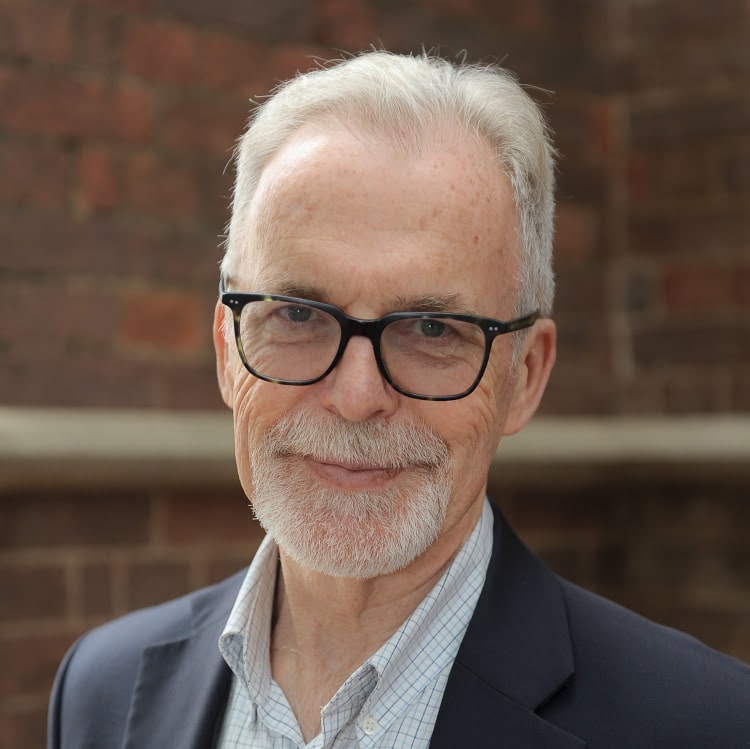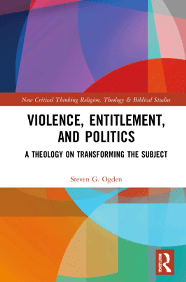Steven G. Ogden, Violence, Entitlement, and Politics: A Theology on Transforming the Subject (London & New York: Routledge, 2022).

By Duncan Reid
5 November 2021
Theology, as the Peruvian liberationist Gustavo Gutierrez put it, begins at sunset –after the day’s work.
This new theological exploration of the complex of male entitlement and violence, especially gender-based violence, is a good example. The work is bookended by an account of a one-punch attack, exemplifying unthinking and apparently spontaneous male violence, and the January insurrection in Washington as an instance of the same phenomenon on a macro scale.
As an important thread, the reader is accompanied throughout by the initially shadowy Johannine figure of Nicodemus. Explicit theological reflection starts in the fourth of the book’s six chapters, only after Ogden has provided serious background research on these contentious issues in chapters one to three.
Ogden builds on his 2017 book The Church, Authority, and Foucault in using the Foucauldian term dispositif. This admits of no simple translation, but represents a framework or apparatus for investigating the complexity of violence. His early chapters, drawing mainly on sociological and philosophical studies, cover not only the central themes of violence and entitlement, but also the entrenched presuppositions in western societies about rights and ownership.
Part of the complexity is that the construct of masculinity involves the paradox of both complicity and competition between entitled males. Entitlement itself, and its overtones of possessiveness and appropriation, are the major identifier. A number of important recent studies based on lived experience are carefully documented, as well as the work of older theorists like Hannah Arendt.
In chapter four, Ogden develops an engaging theology of transformation. The question is: “How can the subject, especially the entitled male subject, be transformed in the trajectory outlined in the Nicodemus triptych?” Ogden uses another of Foucault’s polyphonic terms, “desubjectivation” here, to encompass the idea of the subject both as entitled (subject over against object) but also as subjected – on both micro and macro levels, as individual and within a culture.
Chapters four to six are really a theology of baptism, though this is unfolded explicitly only in chapter six. Baptism is the performative act that goes to the root of inner and outer change, the dying of an old self and the rising of the new.
This does not, however, mean any sort of naïve optimism about efficacy of programs or strategies of transformation. The individual perpetrator is rarely fully re-formed, so the transformation – a profoundly theological term, by the way – has to take place on the level of culture as well as within individuals. One level cannot work without the other, with confession and truth-telling as integral parts of these processes. None of this can happen at depth without attention to spirit and spirituality.
Ogden has made a significant contribution to our understanding of masculine entitlement and violence, filling a void in contemporary public discourse. In the interests of clarity he re-presents the central themes in different ways.
At no point in this book can there be any doubt as to what the writer so passionately wants to convey, or where the argument is leading or upon what foundations it is built. At the end we are left with the figure of Nicodemus, an entitled man, a “ruler of the Jews”, who uses his position to stand up against other entitled men at the trial of Jesus and to appeal to absolute entitlement in the person of Pontius Pilate. Nicodemus has become a subject transformed, “born from above”.
Reverend Doctor Duncan Reid is head of Religious Education at Camberwell Girls Grammar School and a Research Associate at the Trinity College Theological School within the University of Divinity.
Reverend Doctor Steven Ogden is former Dean of St Peter’s Cathedral Adelaide, and former Principal of St Francis’ Theological College, Brisbane.







